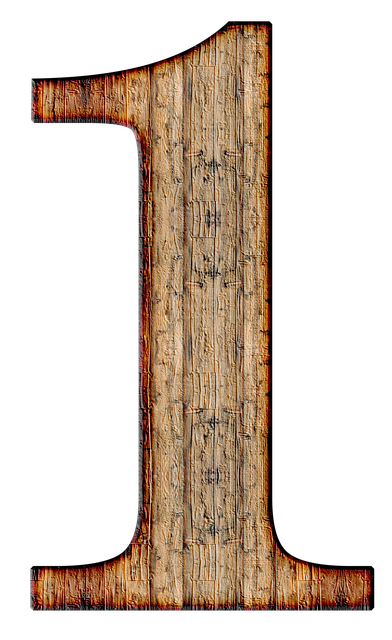Before purchasing a used vehicle, it's essential to perform a VIN lookup to check for any unresolved recalls issued by the manufacturer. These recalls are safety-related fixes and are crucial for maintaining vehicle integrity and ensuring compliance with safety standards. The National Highway Traffic Safety Administration (NHTSA) database or other VIN lookup services can provide this information, helping buyers to address any outstanding issues before finalizing the purchase. This step is non-negotiable for road safety, as it ensures that known defects associated with past recalls are fixed, thereby protecting drivers, passengers, and other road users from potential harm. Additionally, overlooking recalls can lead to insurance complications and invalidate warranties related to the faulty part. By verifying a vehicle's recall status and completing any necessary repairs, buyers demonstrate due diligence and help ensure their vehicle meets current safety standards.
When considering the purchase of a vehicle, prioritizing safety should transcend the appeal of its features or the cost of its acquisition. A critical step in this process is verifying a vehicle’s compliance with safety standards through a VIN Lookup for Recalls. This simple yet effective tool can unveil any outstanding safety recalls that may compromise your well-being on the road. With countless vehicles operating under the shadow of unaddressed recalls, proactive measures by potential buyers are paramount in upholding their safety and that of fellow travelers. This article delves into the essential steps for conducting a recall check, elucidates the risks inherent in ignoring these alerts, and offers guidance on maintaining your vehicle’s safety post-purchase. Through informed decision-making, you can navigate the road with confidence, knowing your vehicle aligns with the highest safety benchmarks.
- Understanding Vehicle Safety Recalls
- The Importance of VIN Lookup for Recalls
- Steps to Perform a Recall Check Before Purchase
- Risks of Ignoring Outstanding Recalls
- Ensuring Your Vehicle Meets Safety Standards Post-Purchase
Understanding Vehicle Safety Recalls

When a manufacturer identifies a safety issue with their vehicles, they may issue a recall to address the problem. These recalls are not optional; they are imperative for maintaining vehicle safety and integrity. A Vehicle Identification Number (VIN) is a unique code found on every vehicle that can be used to identify specific details about the car, including any outstanding recalls. The National Highway Traffic Safety Administration (NHTSA) in the United States maintains a database of all recalled vehicles. Consumers have the responsibility to verify if the vehicle they intend to purchase has been subject to a recall. This verification is crucial as it can prevent potential accidents and ensure that the vehicle’s safety features are functioning correctly. It’s a critical step for any buyer, as recent incidents have shown that many vehicles with known safety issues remain on the road, increasing the risk of harm to drivers, passengers, and other road users. By using a VIN lookup service for recalls, buyers can ascertain whether the manufacturer has already resolved these safety concerns, thus ensuring compliance with safety standards and enhancing overall road safety. It’s a due diligence step that every car shopper should take before finalizing a purchase.
The Importance of VIN Lookup for Recalls

When considering the purchase of a used vehicle, it is imperative to verify its safety compliance. A Vehicle Identification Number (VIN) lookup for recalls is an essential tool in this process. This lookup allows potential buyers to access a comprehensive database that records all safety-related recalls issued by manufacturers. It is a critical step as recent data indicates that many vehicles on the road have outstanding recalls, which can compromise driver and passenger safety. These recalls are often issued due to defects or safety concerns that could lead to accidents or injuries if not addressed. By using the VIN lookup service, buyers can identify any such issues before finalizing a purchase. This proactive measure ensures that the vehicle has been inspected and repaired in accordance with safety standards, thus providing an added layer of protection for the owner and reducing the risk of unforeseen accidents. It is a prudent step that every buyer should take to safeguard their investment and ensure their vehicle is safe for travel. Conducting a recall check is not just about adhering to safety protocols; it is about making an informed decision that prioritizes road safety and the well-being of all occupants.
Steps to Perform a Recall Check Before Purchase

When considering the purchase of a used vehicle, one critical step in the vetting process is to perform a recall check. This due diligence can reveal any outstanding safety recalls issued by the manufacturer that might affect the vehicle’s safety and reliability. To execute this check, buyers should visit the official National Highway Traffic Safety Administration (NHTSA) website or the equivalent in their country, where they can enter the Vehicle Identification Number (VIN). This unique code provides detailed information about the vehicle’s history, including any recalls that have been issued and not yet remedied. It is important to note that even if a vehicle passes all other inspections with flying colors, an outstanding recall indicates that there are known safety issues that must be addressed before it can be considered safe for the road. By cross-referencing the VIN against the database of recalls, buyers can identify any necessary repairs that need to be made before finalizing the purchase. This step not only ensures compliance with safety standards but also contributes to the overall safety on roads by preventing vehicles with known defects from being operated without proper corrections. Additionally, some dealerships and private sellers may already have taken care of such recalls; however, it remains the buyer’s responsibility to confirm this through the recall check process. This proactive approach protects consumers from potential safety hazards and underscores the importance of this pre-purchase verification.
Risks of Ignoring Outstanding Recalls

Ignoring outstanding recalls on a vehicle can have serious implications for both the driver and passengers. These recalls are issued when manufacturers identify defects or safety issues that pose risks, such as faulty airbags or ignition systems that could lead to crashes, or potentially explosive Takata airbag inflators. By overlooking these recalls, vehicle owners may inadvertently be operating under conditions that significantly increase the likelihood of an accident occurring. Moreover, if a recall repair is not performed, the insurance company may deny coverage for damages resulting from the defect that the recall was meant to address. This leaves the owner financially and legally responsible for any incidents caused by the uncorrected issue. Additionally, driving a vehicle with outstanding recalls can invalidate warranty claims for parts related to the defect and potentially complicate future insurance claims. It is crucial for consumers to proactively check for recalls and ensure that their vehicle has received all necessary repairs before purchasing or continuing to use it, thus safeguarding themselves and others on the road from potential harm.
Ensuring Your Vehicle Meets Safety Standards Post-Purchase

When you acquire a vehicle, it’s imperative to ensure that it complies with the latest safety standards post-purchase. A critical step in this process is conducting a VIN (Vehicle Identification Number) lookup for recalls. This straightforward procedure can reveal any past or present recalls issued by the manufacturer due to safety concerns. Recalls are actions taken by manufacturers to repair vehicles at no cost to the owner, which is why it’s essential to verify that these repairs have been completed. By doing so, you safeguard against potential hazards and ensure your vehicle is as safe as possible for operation. It’s not just about adhering to safety standards; it’s about proactively addressing any known issues that could compromise the integrity of the vehicle or pose a risk to its occupants.
Once you have identified any outstanding recalls through the VIN lookup, the next step is to address them promptly. Contact the dealership or manufacturer where the vehicle was purchased or is currently registered. They will guide you on how to proceed with the necessary repairs. It’s important to keep all service records related to recall remedies. These documents serve as a history of your vehicle’s maintenance and can be invaluable should you decide to sell the car in the future, as they demonstrate a commitment to maintaining safety standards. Regular maintenance and timely addressing of recalls contribute significantly to the longevity and safety of your vehicle, offering peace of mind and ensuring compliance with safety regulations throughout its lifespan.
When purchasing a vehicle, it is imperative to verify its safety compliance, a process made accessible through a VIN Lookup for Recalls. This simple yet critical step safeguards potential buyers from the risks associated with vehicles that have outstanding recalls. As evidenced by recent reports, these recalls can address significant safety issues, making the vehicle less safe than it should be. By adhering to the guidelines outlined in this article, such as performing a recall check before finalizing a purchase and addressing any identified issues post-purchase, consumers can confidently navigate the used car market with the assurance of road safety and compliance with safety standards. It is a small yet significant measure that every buyer should take to protect their investment and well-being.



